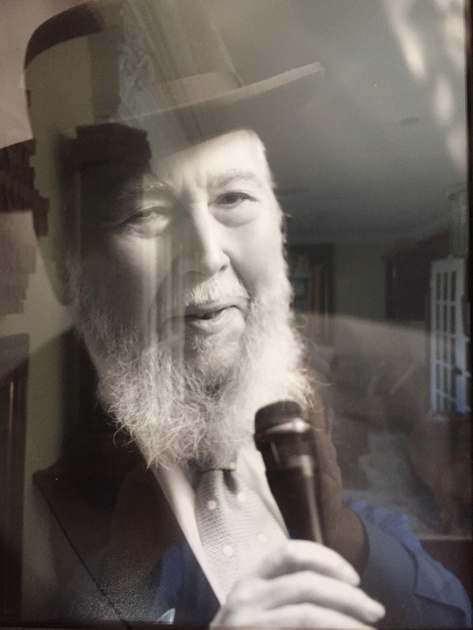
Eruvin 18
לְכִדְרַבִּי שִׁמְעוֹן בֶּן מְנַסְיָא. דְּדָרֵישׁ רַבִּי שִׁמְעוֹן בֶּן מְנַסְיָא: ״וַיִּבֶן ה׳ אֱלֹהִים אֶת הַצֵּלָע״ — מְלַמֵּד שֶׁקִּילְּעָהּ הַקָּדוֹשׁ בָּרוּךְ הוּא לְחַוָּה וֶהֱבִיאָהּ לְאָדָם הָרִאשׁוֹן, שֶׁכֵּן בִּכְרַכֵּי הַיָּם קוֹרִין לְקַלָּעִיתָא בַּנָּיְיתָא.
The Gemara responds: This must be interpreted homiletically, in accordance with the opinion of Rabbi Shimon ben Menasya, as Rabbi Shimon ben Menasya interpreted homiletically the verse: “And the Lord God built the tzela.” This verse teaches that the Holy One, Blessed be He, braided for Eve her hair, and then brought her to Adam, as in the coastal towns, they call braiding hair building.
for Video Shiur click here to listen: Psychology of the DAF Eruvin 18
קהלת רבה ז:ב
אָמַר רַבִּי בֶּרֶכְיָה גְּמִילוּת חֶסֶד בַּתּוֹרָה, בְּרֹאשָׁהּ, וּבְאֶמְצָעִיתָהּ, וּבְסוֹפָהּ. בְּרֹאשָׁהּ, דִּכְתִיב (בראשית ב, כב): וַיִּבֶן ה' אֱלֹהִים אֶת הַצֵּלָע, מְלַמֵּד שֶׁקִּלְעָה הַקָּדוֹשׁ בָּרוּךְ הוּא לְחַוָּה וֶהֱבִיאָהּ אֶל הָאָדָם וְנַעֲשָׂה שׁוֹשְׁבִין לָהֶם, שֶׁכֵּן בִּכְרַכֵּי הַיָּם קוֹרִין לְקַלְעִיתָא בָּנְיָאתָא. וּבְאֶמְצָעִיתָהּ, דִּכְתִיב (בראשית יח, א): וַיֵּרָא אֵלָיו ה' בְּאֵלֹנֵי מַמְרֵא, מְלַמֵּד שֶׁבִּקְּרוֹ (בראשית כה, יא): וַיְבָרֶךְ אֱלֹהִים אֶת יִצְחָק בְּנוֹ, זוֹ בִּרְכַּת אֲבֵלִים. בְּסוֹפָהּ, שֶׁנֶּאֱמַר (דברים לד, ו): וַיִּקְבֹּר אֹתוֹ בַגַּי. ...מְקַשֵּׁט כַּלּוֹת דִּכְתִיב (בראשית ב, כב): וַיִּבֶן ה' אֱלֹהִים, רַבִּי יוֹחָנָן אָמַר בְּנָאָהּ וְקִשְׁטָהּ וְהֶרְאָהּ לוֹ. אָמַר רַבִּי אַבָּהוּ שֶׁמָּא תֹאמַר מִתּוֹךְ חָרוּב אֶחָד אוֹ מִתּוֹךְ שִׁקְמָה אַחַת הֶרְאָהּ לוֹ, אֶלָּא מֵאַחַר שֶׁקִּשְׁטָהּ בְּעֶשְׂרִים וְאַרְבָּעָה מִינֵי תַּכְשִׁיטִין, אַחַר כָּךְ הֶרְאָהּ לוֹ, שֶׁנֶּאֱמַר (בראשית ב, כב): וַיְבִאֶהָ אֶל הָאָדָם.
בן יהוידע שבת צה,א
מְלַמֵּד שֶׁקִּלְּעָהּ הַקָּדוֹשׁ בָּרוּךְ הוּא לְחַוָּה, וֶהֱבִיאָהּ אֵצֶל אָדָם. פירוש בעת שבראה גזר שיהיה שערה נברא קלוע מעיקרו, ולא סתור שתצטרך לקלעו אחר כך בידיה כדי שאדם הראשון יראנה שערה קלוע הוא נוי שלה תיכף בראיה הראשונה שרואה אותה אחר שנבראת, וצריך להבין למה עשה כן שתהיה גם קליעת שערה שהוא רק לנוי בידי שמים, והוה סגי שיהיה שערה נברא סתור ויתן בינה בחוה שתקלע אותו בשביל נוי ויופי, כמו שנתן בינה באדם הראשון כמ"ש להכות אבן באבן ולהוציא אש מתוכם? ונראה לי בס"ד דרמז לה בזה שהקשוט באשה הוא חיוב עליה השורת הדרך ארץ שתקשט עצמה בפני בעלה, לכן גם קליעת שערה שהוא מכלל הקישוט נעשה לה בידי שמים מתחלת בריאתה.
This Shows the importance of a woman’s beauty, and particularly her hair. I cannot question another person’s Minhag, however suffice it to say if it is NOT your original minhag to shave your hair, don’t start doing so out of piety.
Perhaps one could answer for the minhag as follows: Chava had her hair only on the wedding day; it doesn’t say what happened the next morning. While that is a technical answer, it seems that the point was for Chava to be beautiful through her hair; shaving it the next day would run against that.
Another interesting idea that comes out from this Midrash is that However, it gives support to the custom that a bride does not cover her hair under the chuppah on the wedding night.
for Video Shiur click here to listen: Psychology of the DAF Eruvin 18
Translations Courtesy of Sefaria
Photo Abba Mari Rav Chaim Feuerman, Ed.D. ZT"L Leiyluy Nishmaso
Translations Courtesy of Sefaria, except when, sometimes, I disagree with the translation ![]()
Do you like what you see? Please subscribe and also forward any articles you enjoy to your friends, (enemies too, why not?)
 Previous
Previous

